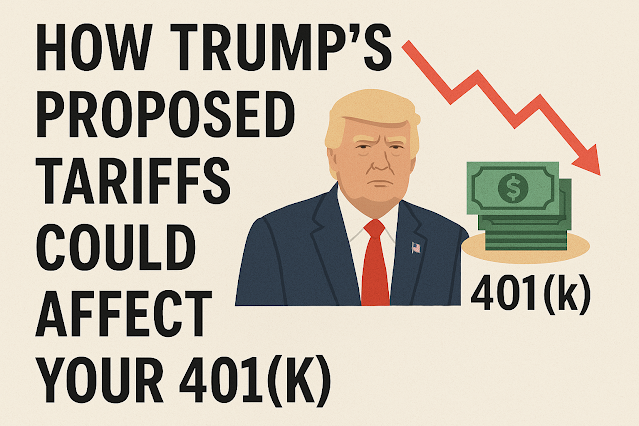With President Donald Trump’s recent election victory, discussions about his economic policies are heating up, particularly his plans for steep tariffs on imports. During his campaign, Trump floated the idea of imposing a 10% to 20% tariff on all foreign goods entering the U.S., with an even heftier 60% rate targeting Chinese products. Now that he’s set to return to the White House, financial experts are weighing in on how these measures might ripple through the economy—and potentially your retirement savings.
What Tariffs Mean for the Market
Tariffs are essentially taxes slapped on imported goods, designed to make foreign products pricier and nudge consumers toward American-made alternatives. Trump’s argument is straightforward: protect U.S. jobs and shrink the trade deficit. But economists warn that the reality might not be so simple. Higher costs for imports could spark inflation, disrupt supply chains, and squeeze corporate profits, especially for companies reliant on overseas goods or markets.
Since many 401(k) plans are tied to the stock market through mutual funds and index funds like those tracking the S&P 500, any turbulence in corporate earnings could rattle your nest egg. “If businesses face higher costs and slimmer margins, their stock prices could take a hit,” says Sarah Collins, a financial analyst at Wealth Strategies Group. “That’s a direct line to your retirement account.”
A Mixed Bag for Stocks
Not all companies would feel the same sting. Firms heavily dependent on imports—think retailers like Walmart or manufacturers sourcing parts from Asia—might struggle as costs climb. On the flip side, domestic producers insulated from foreign competition could see a boost if tariffs make their goods more competitive. The catch? Most 401(k) portfolios are diversified across industries, so gains in one sector might not offset losses in another.
Take the S&P 500 as an example: about 40% of its companies’ revenue comes from abroad. If tariffs trigger retaliation from trading partners—like China or the European Union—those international sales could dry up, dragging down stock prices. “It’s a double-edged sword,” notes Mark Rivera, an economist at Bay Area Financial Insights. “Protecting U.S. industries sounds great, but global trade is a two-way street.”
Inflation and Interest Rates: The Wild Cards
Beyond stocks, tariffs could stoke inflation by driving up the price of everyday goods, from electronics to clothing. If that happens, the Federal Reserve might respond by hiking interest rates to cool things off. Higher rates tend to weigh on stock valuations while boosting bond yields—a shift that could hurt equity-heavy 401(k)s but benefit those with bond allocations.
For younger savers with decades until retirement, short-term dips might not be a crisis. But for those nearing retirement, timing matters. “If you’re about to start drawing down your 401(k), a market slump could force you to sell at a loss,” Collins says. She advises older investors to consider rebalancing toward less volatile assets, like bonds, if tariff-driven uncertainty looms.
Historical Clues and Current Uncertainty
Trump’s first term offers a glimpse of what might come. In 2018, his tariffs on steel, aluminum, and Chinese goods sparked market jitters but didn’t derail the bull run—stocks largely recovered after an initial wobble. Today’s landscape, though, is different. With inflation already a lingering concern and global tensions simmering, the stakes feel higher.
Experts aren’t unanimous on the outcome. Some predict a mild hit to 401(k) balances—perhaps a 5% to 10% dip if tariffs roll out gradually—while others see a steeper drop if trade wars escalate. “It’s impossible to pin down exactly,” Rivera admits. “Too much depends on how other countries respond and how businesses adapt.”
What Can You Do?
For now, financial advisors urge calm. Diversification—spreading investments across stocks, bonds, and even international funds—remains a solid defense. “Don’t try to time the market based on tariff headlines,” Collins cautions. “Stick to your long-term plan unless your goals or risk tolerance change.”
Still, staying informed doesn’t hurt. Trump’s tariff talk could shift as his administration takes shape, and any concrete moves will likely take months to unfold. In the meantime, checking your 401(k) allocation and chatting with a financial planner might offer some peace of mind. Your retirement savings might face a bumpy ride, but history suggests it’s not time to panic—yet.


